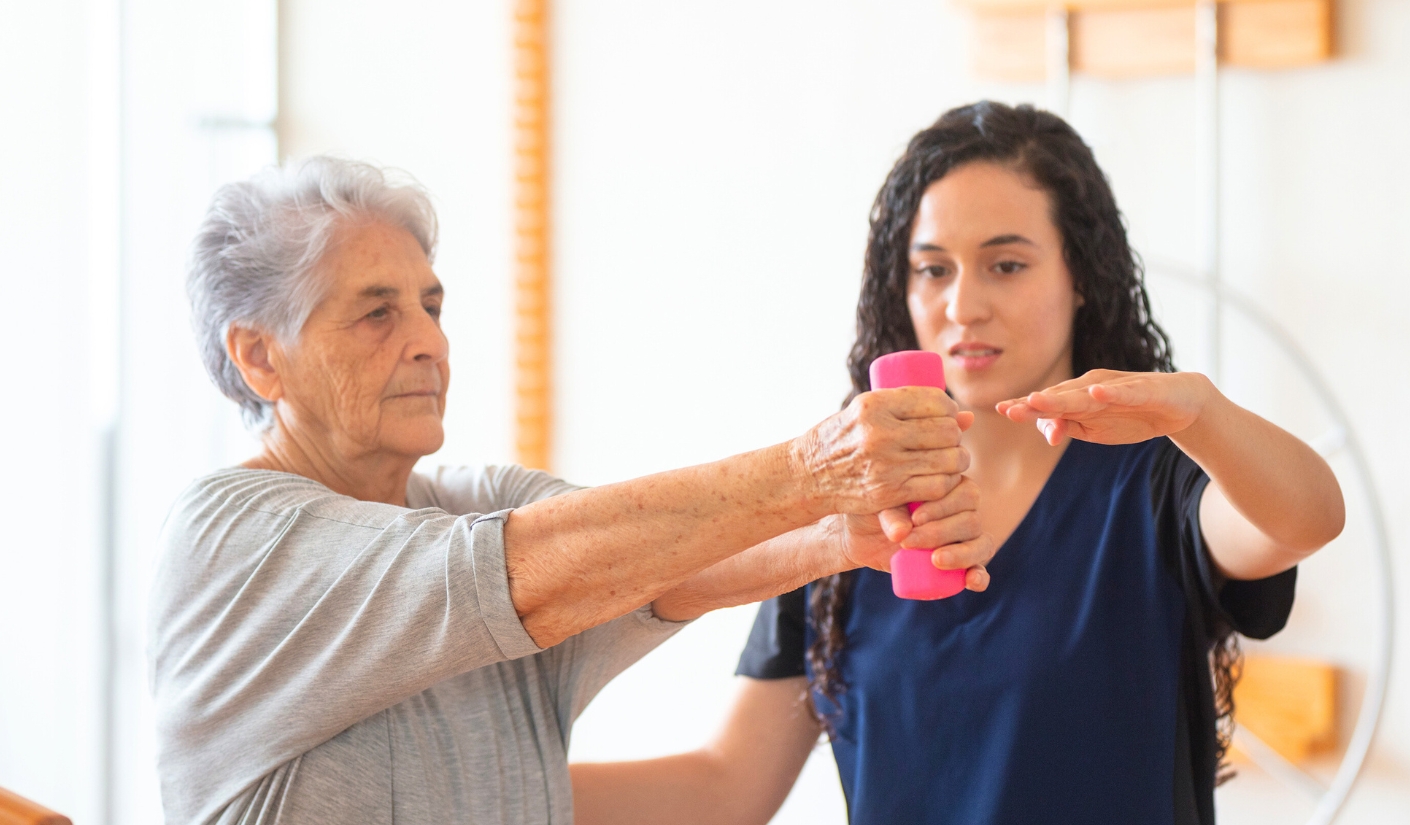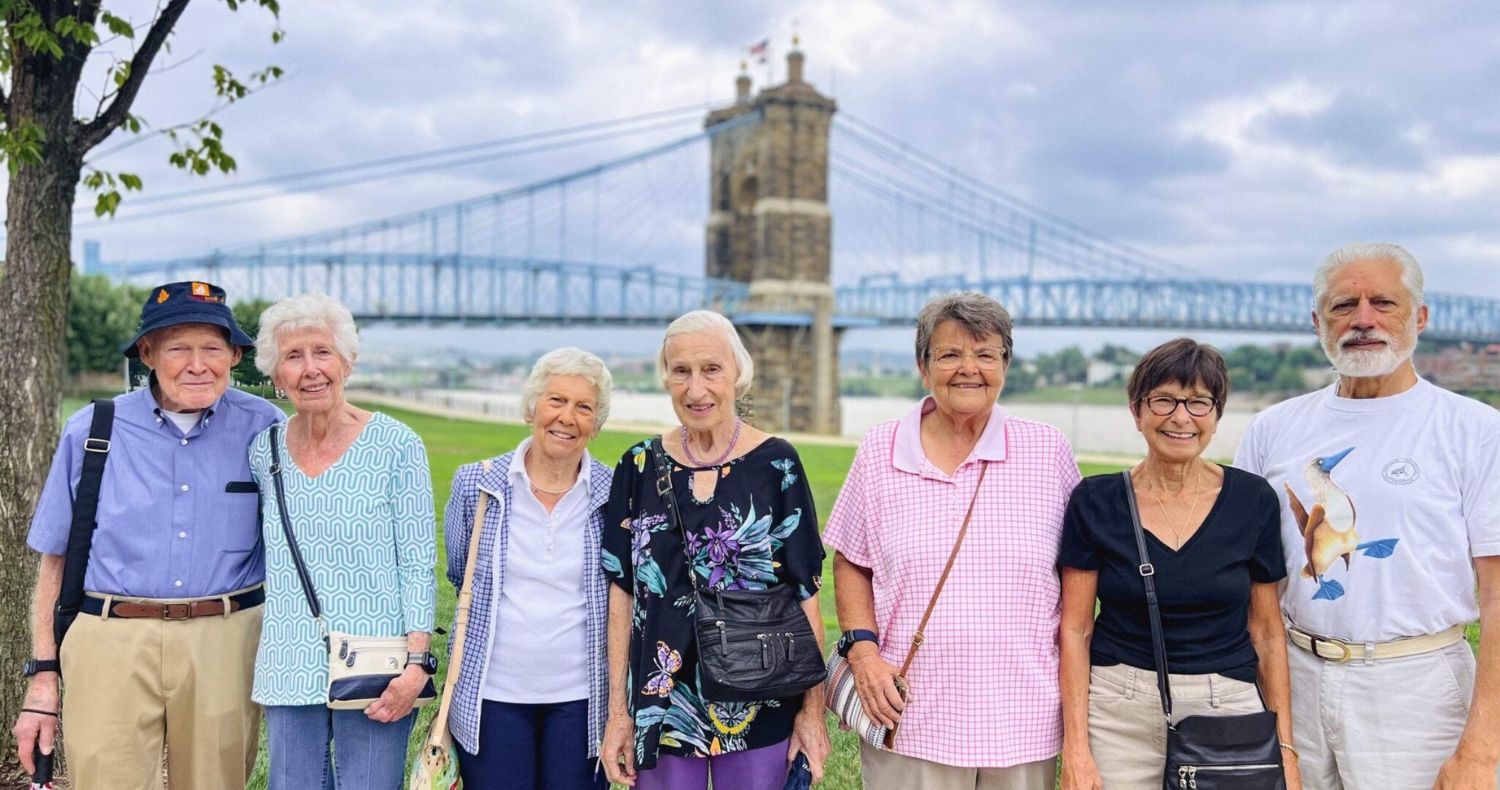At Maple Knoll Village, we believe every resident deserves to move through life with confidence. Whether it is walking to the dining room, gardening, or keeping up with grandkids, staying active is key to independence and quality of life. That is why our community offers the convenience of on-site physical therapy by bringing professional care, encouragement, and recovery support right to your doorstep.
For residents and families alike, this means less travel, faster recovery, and greater peace of mind.
What Is On-Site Physical Therapy?
Simply put, on-site physical therapy means that instead of traveling to a clinic or doctor’s office, licensed therapists come directly to you, right within our retirement community. Sessions take place in familiar surroundings, using personalized programs designed to help you reach your goals safely and comfortably.
At Maple Knoll Village, our physical therapy partners build services around you. Whether you are recovering from surgery, managing pain, or improving balance to prevent falls, our therapy partners focus on what matters most — helping you stay strong, independent, and active.
Why It Matters for Seniors — and Their Families
Having physical therapy available on-site is not just convenient; it is life changing. Here’s why families and residents love it:
1. Convenience and Comfort
You do not have to worry about arranging transportation, driving in bad weather, or waiting in a crowded clinic. At Maple Knoll Village, our therapy partners are just steps away, making it easier to stay consistent and motivated.
2. Faster Recovery, Better Results
Studies show that regular therapy sessions improve recovery times after surgery or illness and help seniors regain confidence in their movement. Motion PT Group notes that therapy helps older adults rebuild balance, coordination, and strength, all essential for preventing future injuries.
3. Personalized for Every Resident
Our therapy partners work closely with each individual to understand their goals, whether that is walking without a cane, climbing stairs again, or simply feeling steadier on their feet. Every plan is customized to support the resident’s lifestyle and current abilities.
4. Confidence Through Fall Prevention
Falls are one of the leading causes of injury among seniors, but they are also highly preventable. Our therapy partners help residents strengthen key muscles, improve balance, and overcome the fear of falling; helping them move with confidence every day.
5. Peace of Mind for Families
For families, knowing that your loved one has access to skilled, compassionate therapists right on campus brings invaluable reassurance. You can rest easy knowing they are receiving expert care in a safe, familiar environment, without having to leave home.
How Physical Therapy Fits into Healthy Aging
Staying active isn’t only about recovery, it’s about maintaining independence as you age.
According to the National Council on Aging, physical therapy helps older adults manage chronic conditions, build strength, and stay engaged in community life.
At Maple Knoll Village, our goal is to make wellness part of every resident’s daily experience through movement, connection, and confidence.
Experience the Difference at Maple Knoll Village
If you or your loved one is considering senior living, ask an important question:
Does the community offer on-site physical therapy?
It is one of the clearest signs that the community is truly invested in residents’ long-term health and independence.
At Maple Knoll Village, we are proud to provide residents with compassionate care that helps them recover faster, stay stronger, and live with greater confidence, all within a warm, supportive environment that feels like home.
Because when you have access to expert therapy just steps away, every day becomes an opportunity to move, heal, and thrive.










